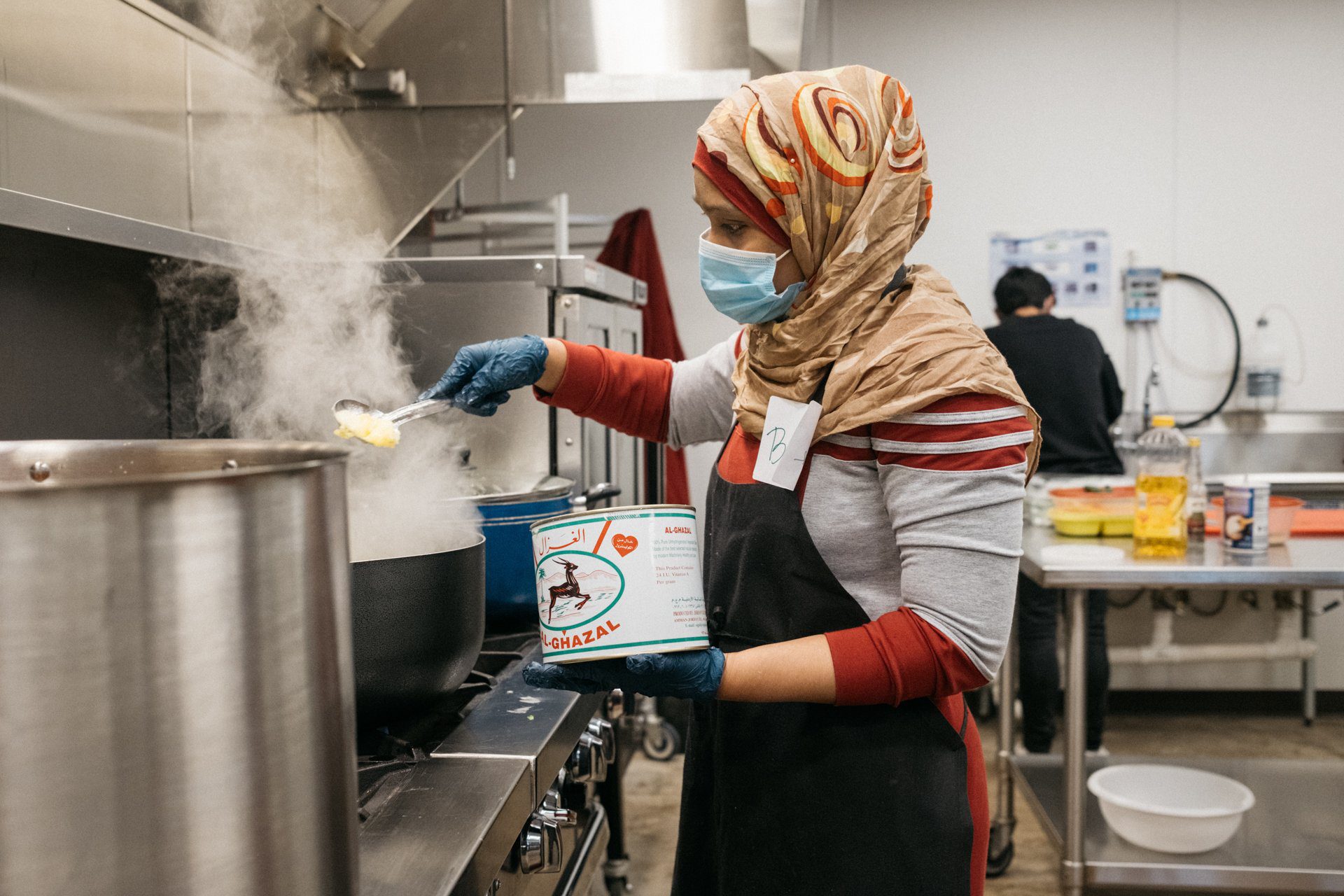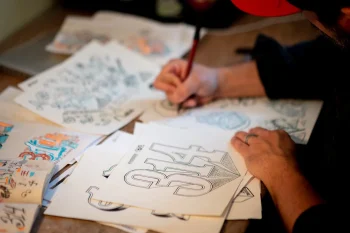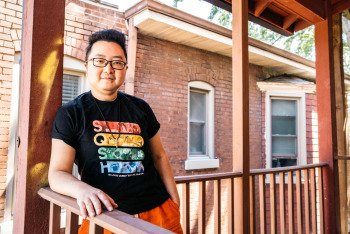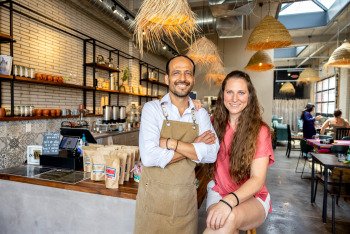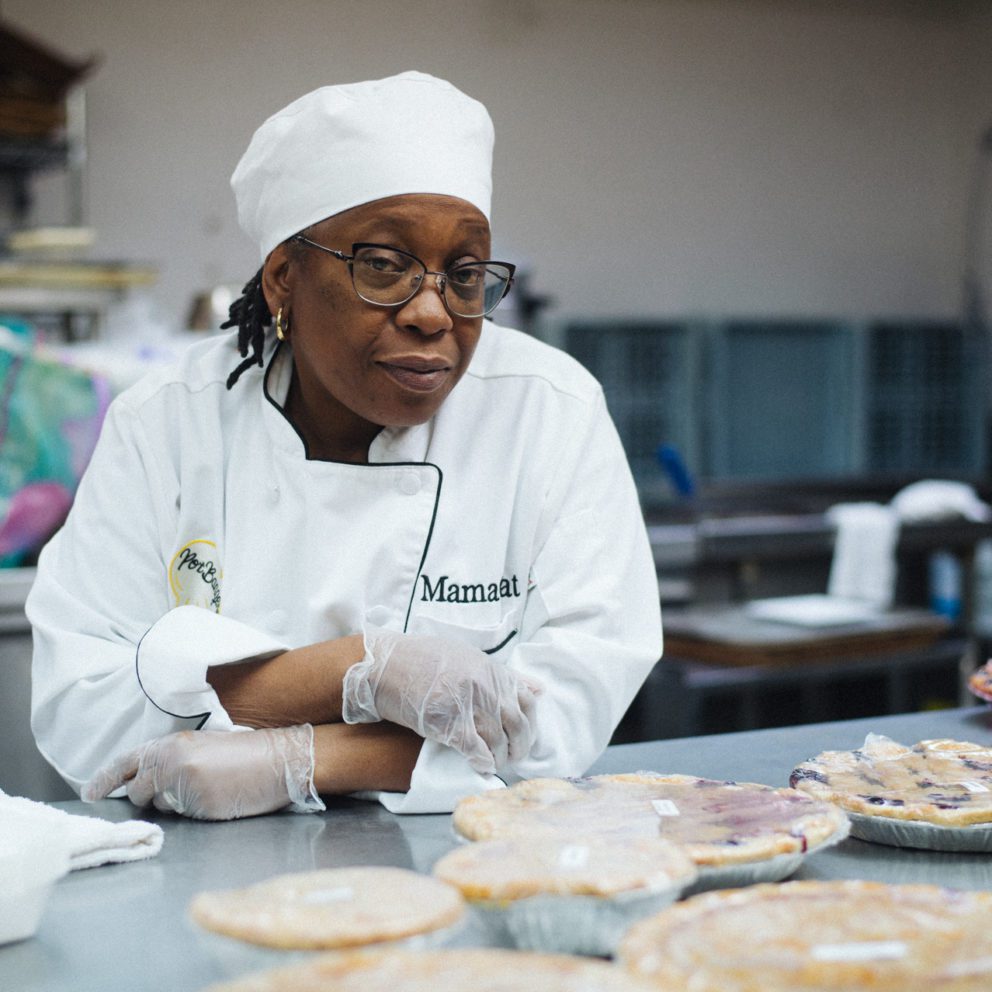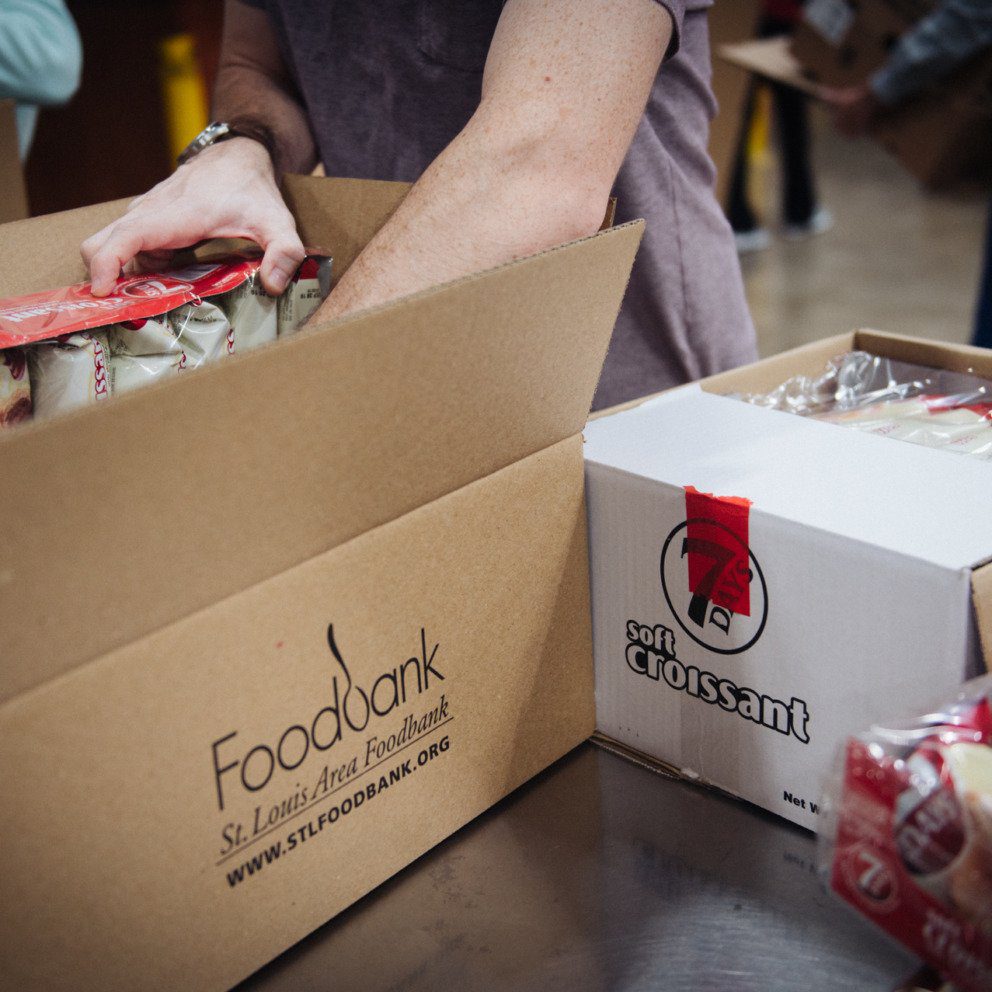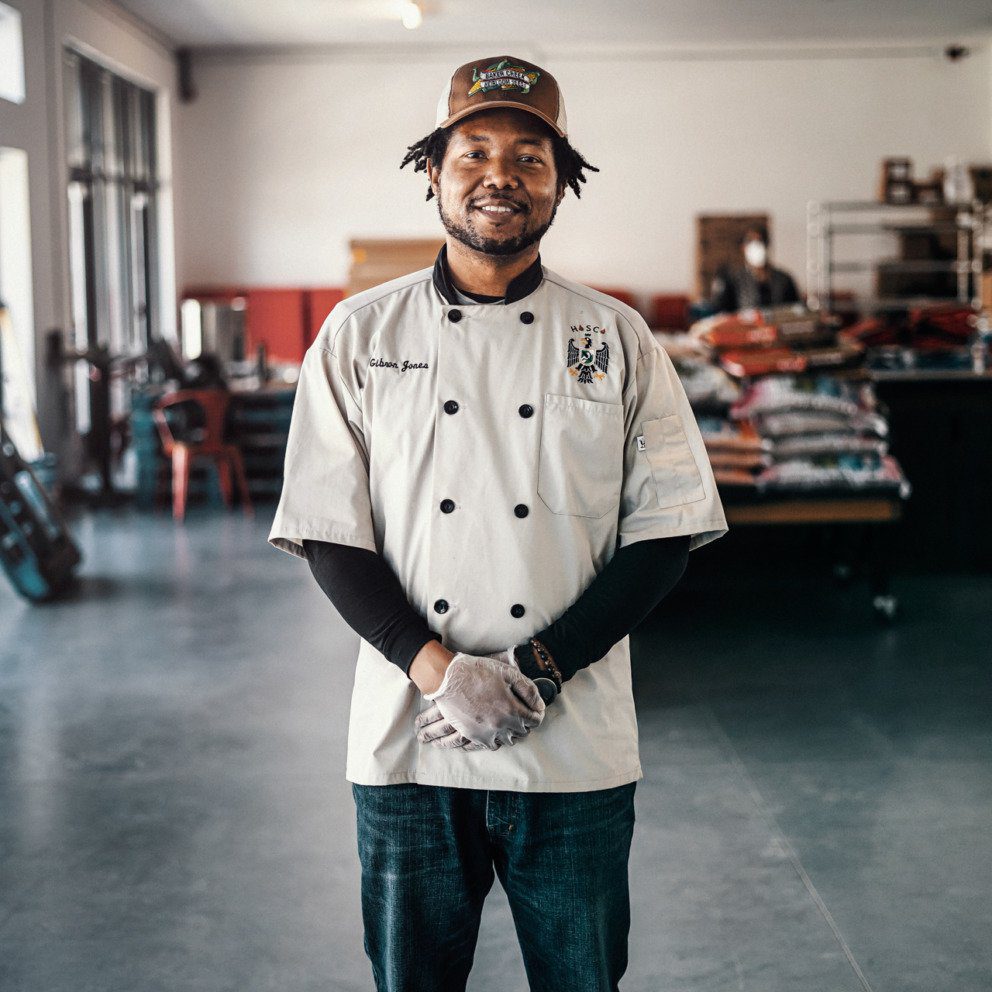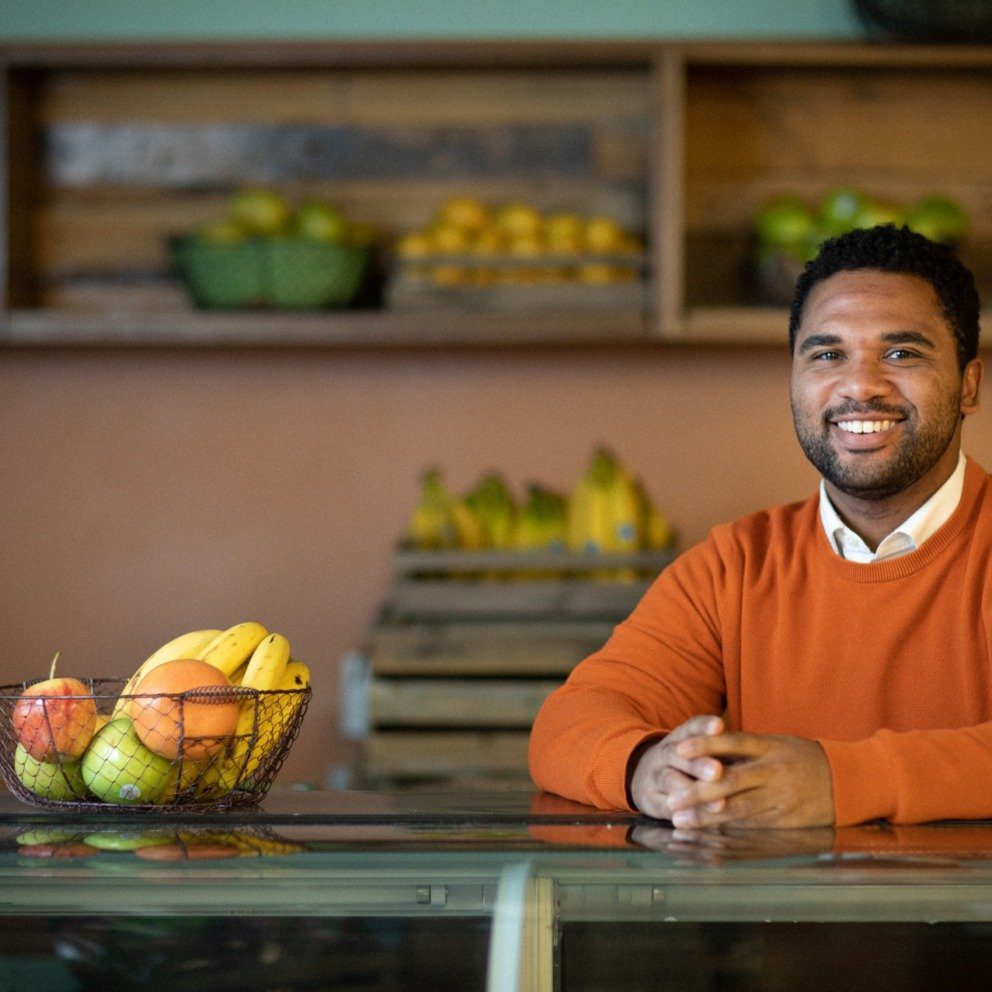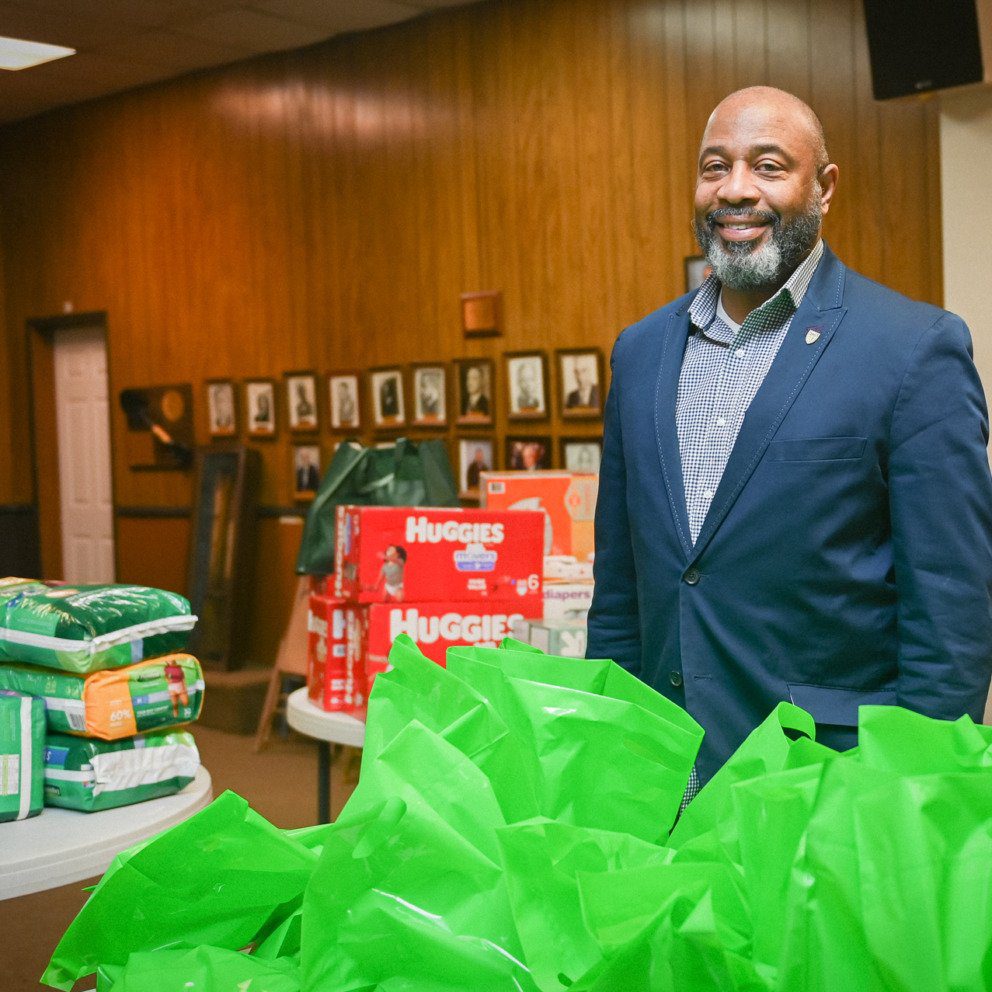A Hearty Dish
Welcome Neighbor STL's drive-thru supper clubs are a lifeline for refugees.
Badur Mohamed will never forget the abject misery she felt as a newly-arrived refugee in St. Louis in the winter of 2010. She and her husband had just arrived from Kuwait, where they were targeted for years because Mr. Mohamed is Iraqi, an identity that is persecuted in that country. Under the cover of night, they fled their home and made their way to the United States, where they hoped to make a better life for their family. Once she was here, though, all she wanted was to go back.
“It was so hard; my situation was sad,” Mohamed recalls. “I didn’t speak English. I didn’t know how to read English. We had no furniture. I didn’t even know how to eat because I didn’t know how to buy food. I had no car and didn’t know where the restaurant was, so I didn’t eat for seven days. It was the first time I saw ice, and I had to take the bus with snow up to my knees when I was pregnant so I could go to the doctor. I cried all the time and begged to go back to Kuwait.”
Seeing Mohamed today, it’s hard to imagine her in such a state of distress. Beaming, bubbly and exuding confidence, Mohamed feels that she has found a sense of purpose thanks to the personal and professional connections she’s made through Welcome Neighbor STL, a refugee support organization founded by Jessica Bueler in 2016. The group’s regular supper club events have been particularly important to Mohamed, allowing her to carve out an identity for herself in her adopted country while doing something she’s always loved to do.
Bueler never imagined the impact Welcome Neighbor STL would have on the lives of refugee women in St. Louis when she organized the group four years ago. In fact, she didn’t even know she was organizing a group at all. Moved by a story about violent attacks against young refugee men around their apartment complex near Hodiamont and Page Avenues, Bueler set out to connect with the new Americans by organizing a Thanksgiving toiletries drive. That effort quickly blossomed into a full-fledged nonprofit that helps the St. Louis refugee community with everything from emotional and social support to helping families find work, housing and basic necessities.
One of the cornerstones of the Welcome Neighbor STL efforts is its supper club events, which Bueler began as an informal gathering for refugee families to connect with their new neighbors. Over the three years since their founding, the supper clubs have transformed from strictly social events to a jobs program of sorts for women like Mohamed, who have come to see them as an opportunity to develop professionally. Some of the women who have cooked for the supper clubs have used that experience to start their own catering businesses.
Like her friend Mohamed, Duaa Alzatari is a regular cook at the Welcome Neighbor STL supper clubs and sees them as a way for her to begin to create a new life for herself as she grieves the loss of the one she left behind in Syria. Separated from her mother, father, siblings and extended family, who all now reside in Germany, Alzatari, too, felt the isolation Mohamed experienced when she came to town two years ago. She describes the opportunity to cook with Welcome Neighbor as a gift.
“My doctor saw a photo of me on Facebook where I Iooked happy, and she told me, ‘You must have been cooking in that photo,’” Alzatari says. “Usually, I am so sad, but when I cook, I don’t remember that I am sad.”
The supper clubs have become both an emotional and economic lifeline for women like Mohamed and Alzatari, which is why the COVID-19 outbreak has been so difficult for them. Before the pandemic, Welcome Neighbor STL’s supper clubs were multi-course in-person affairs, held at various locations throughout the St. Louis region, where guests would gather around the table for food and conversation. Each event was led by a different woman, and some gathered such a following for their culinary skills that they were able to parlay their supper club experiences into full-fledged catering businesses.
All that changed this March, when the virus made such gatherings difficult, if not impossible. It was devastating for women like Mohamed and Alzatari.
“The supper clubs are a way for women to earn meaningful income and be able to contribute to their families,” says Bueler. “They grew over time for three years, but all that stopped abruptly in March. We had events scheduled until December, and everything was cancelled. All the catering business we’d worked to build was wiped out. Everyone was so disappointed, because it took three years to build up that catering business, and we had finally gotten to the point where everything was set up in place. It felt like everything was knocked down like dominoes.”
That sadness would not last for long. One of Welcome Neighbor STL’s board members knew of a drive-thru fundraiser held at a Ballwin mosque and suggested that such an event might be a model for the supper clubs. Bueler and her team decided to give it a try for their annual World Refugee Day fundraiser in June and were shocked at the reception.
“We couldn’t believe how fast people were signing up,” Bueler says. “We did lunch and dinner, and they both sold out, which made us see we were on to something.”
Since June, Welcome Neighbor STL has held its drive-thru supper clubs bi-weekly at STL Foodworks in the Central West End, with each refugee woman getting a turn to lead the event. The logistics have been seamless: Guests purchase tickets to the event in advance online, then pull up in their car between 5-6:30 p.m. the day of the event to pick up their order from the team of volunteers who help keep things moving.
Bueler credits the drive-thru supper clubs’ success with people’s desire to help and longing for authenticity during such challenging times. Though she does not want to downplay the difficulties that the women have had to go through in readjusting the supper clubs to a safer format for the pandemic, she is heartened by the events’ success.
Mohamed, too, is thrilled that she has been able to keep working, not just for the positive economic impact it has had on her family, but because it’s filled the hole in her heart that was so big just a few years ago.
“In our country, women don’t work, but if you want to work in America, you can do something,” Mohamed says. “It’s so good; I help my family, I can send my parents money, and I love working with my best friends. We were all waiting for someone to say, ‘I’m here. I will help you.’ I’m just so thankful to Welcome Neighbor and Jessica. God gives you good people.”
Join the Story
- Sign up for a drive-thru supper club event here.
- To learn about other opportunities to support refugees and immigrants in St. Louis, join Welcome Neighbor STL’s Facebook group.
- Read and watch HEC Media’s story on Welcome Neighbor STL.
